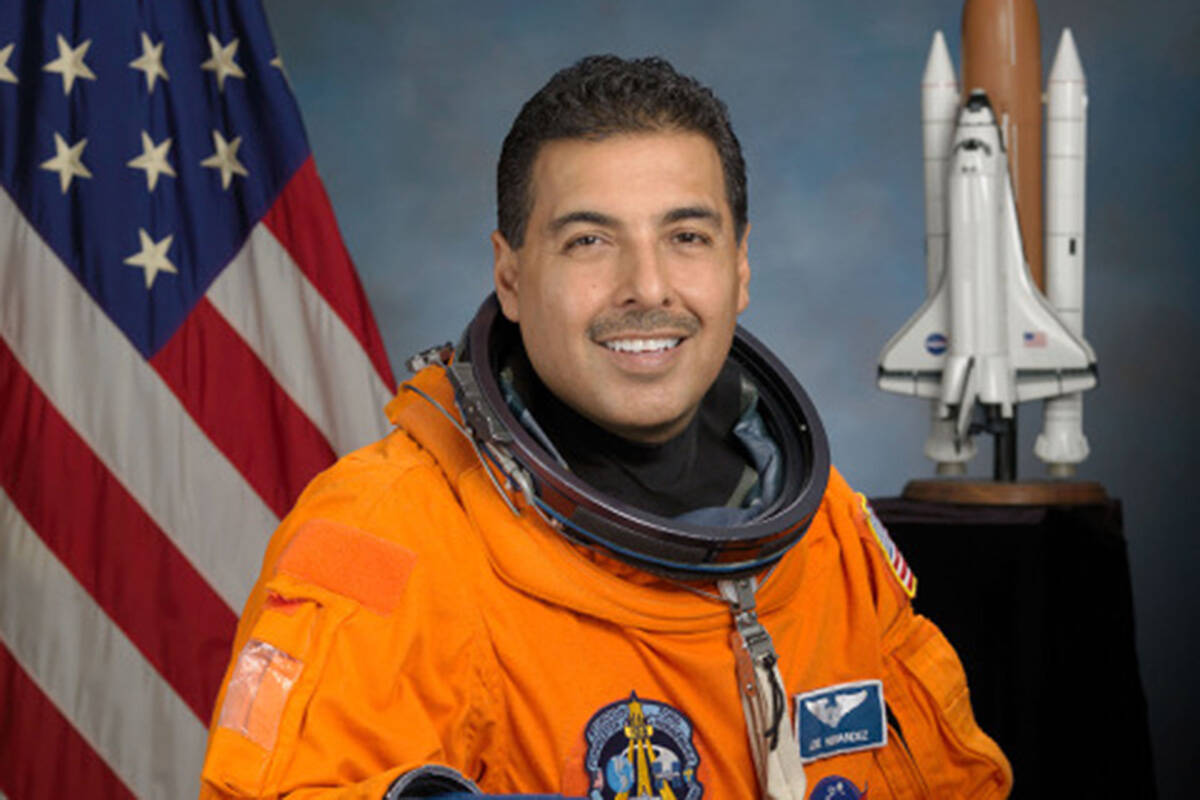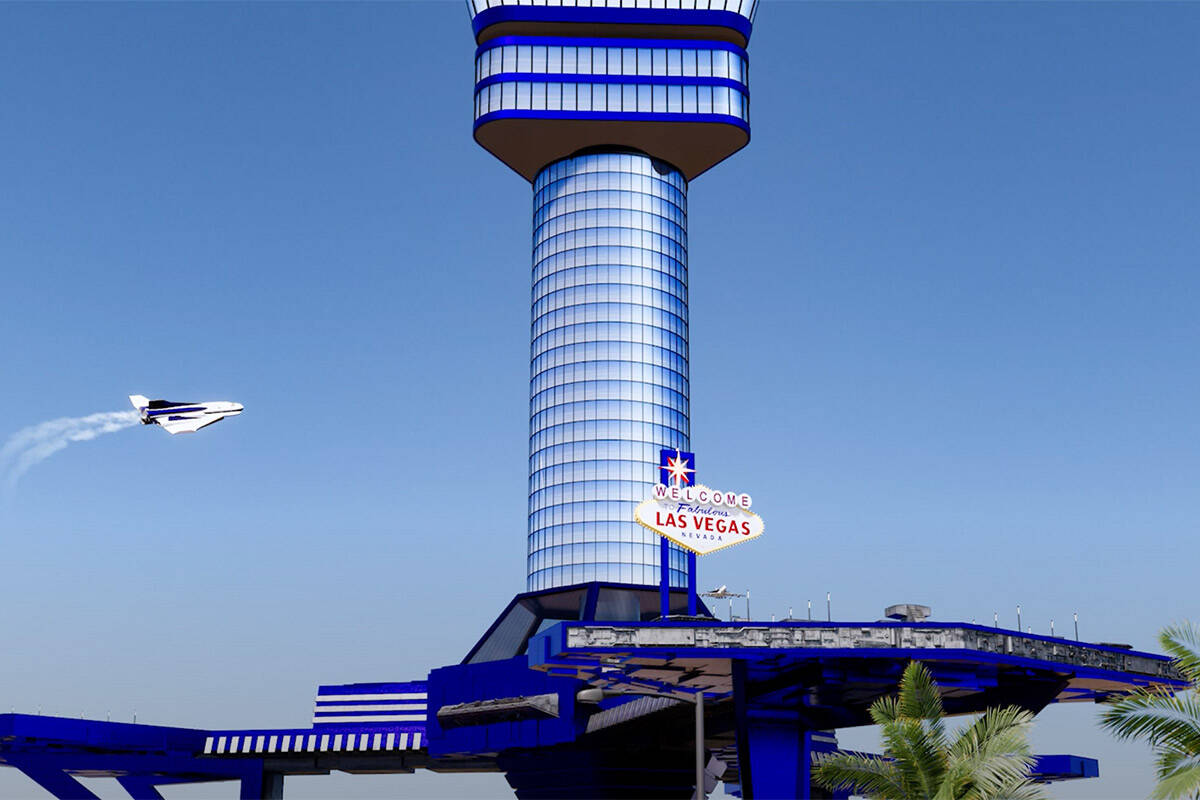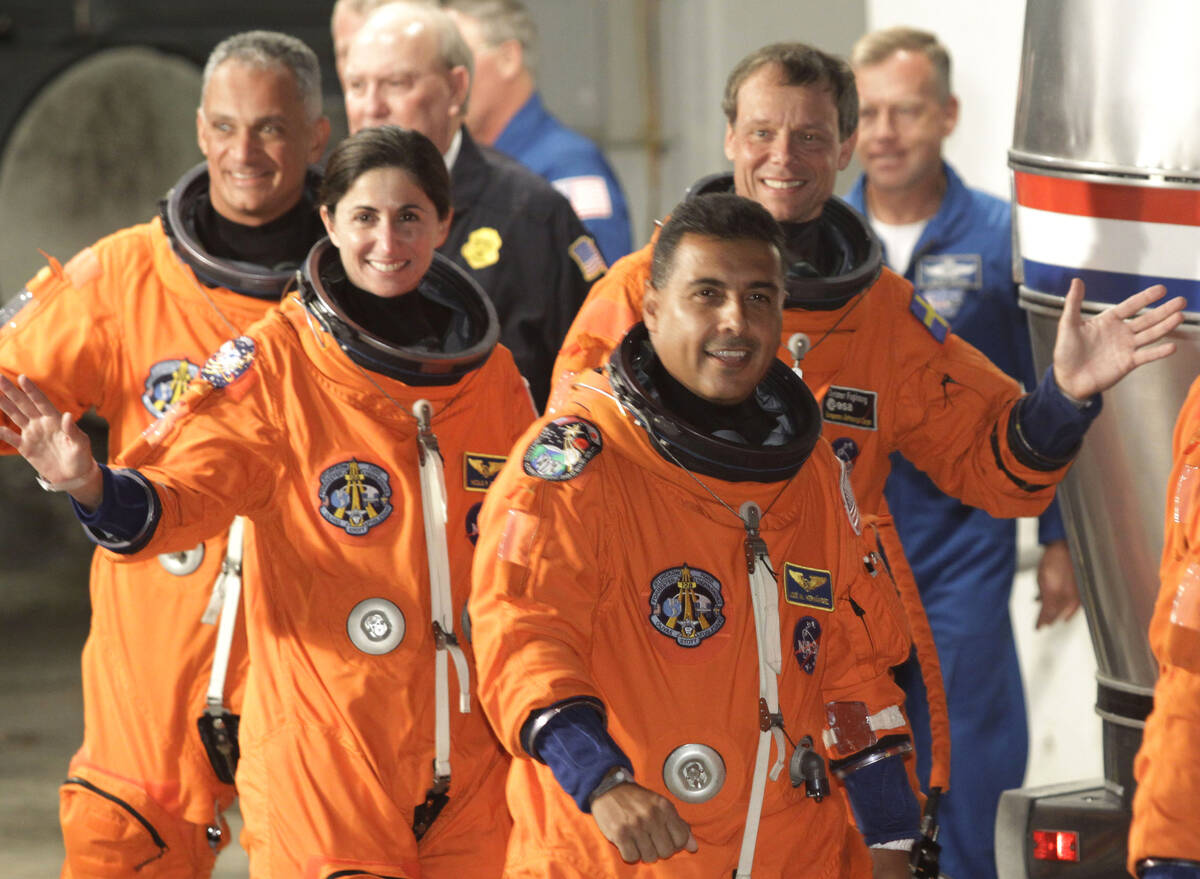Proposed Nevada spaceport chooses former astronaut to advise STEM Academy
The organization that is working to develop a spaceport on desert land between Las Vegas and Pahrump has appointed a former NASA astronaut to lead its Science, Technology, Engineering and Math Academy.
Jose Hernandez, 61, president and CEO of Tierra Luna Engineering LLC and a member of the University of California Board of Regents, has joined the Las Vegas Spaceport as a senior adviser and is expected to coordinate the organization’s STEM Academy to train students to become engineers.
Hernandez is a former astronaut who served as flight engineer on STS-128, a Space Shuttle Discovery 14-day mission to the International Space Station in 2009.
When real estate developer Rob Lauer announced plans for the private spaceport on 240 acres in Clark County in June, he said one of the first efforts of the development would be to establish a STEM Academy to train post-high school students to build and fly vehicles capable of reaching orbit that could be launched from the spaceport or take off and land the same way conventional airplanes do.
Lauer said Hernandez is the perfect person to lead educational efforts because of his own journey as the son of a California farm worker who through a strong work ethic and resilience received college engineering degrees and eventually joined NASA.
Hernandez earned a bachelor’s degree in electrical engineering from the University of the Pacific in Stockton, California in 1985, followed by a master’s degree in electrical engineering from the University of California, Santa Barbara in 1987.
California Gov. Gavin Newsom appointed Hernandez to the University of California Board of Regents in August 2021, with a term that runs through March 2033.
“I am incredibly excited to become a part of the Las Vegas Spaceport team and contribute to the advancement of space exploration and education,” Hernandez said in a release announcing the appointment. “It is a privilege to work alongside dedicated professionals and share my experiences to inspire the next generation of engineers and scientists.”
Lauer said he hopes the STEM Academy would be in operation this year. Lauer said applications for enrollment would be available later this year with the inaugural class scheduled to begin studies in the fall.
Lauer said the Las Vegas Spaceport STEM Academy would offer military-style curriculum in aerospace engineering. Cadets will undergo a rigorous two-year program characterized by high-speed learning and high-stress challenges, preparing them for the demands of the aerospace industry. The program will also provide cadets with the opportunity to engage in summer internships at prominent space companies, granting them firsthand experience in the real-world applications of their studies.
Lauer bought the desert land in November and in June began soliciting investors to raise $310 million to build a launching pad, a runway for spaceplanes, a control tower, a flight school and a 200-room casino resort.
Lauer figures outside Las Vegas is the perfect place to build the spaceport because of the millions of tourists who come to the city for a unique travel experience, with gamblers who don’t flinch at betting thousands of dollars on a poker hand, a roll of the dice or a spin on a roulette wheel.
He expects the first rockets to be launched within five to seven years with spaceplane use within 10.
Once the industry is established, Lauer expects there to be 15 launches per month. He hopes eventually tourists would routinely make flights to an orbiting hotel, the moon or to Mars.
Tourism experts have said it would be important for those involved in the spaceport to be focused on safety of guests.
Contact Richard N. Velotta at rvelotta@reviewjournal.com or 702-477-3893. Follow @RickVelotta on X, formerly known as Twitter.

























